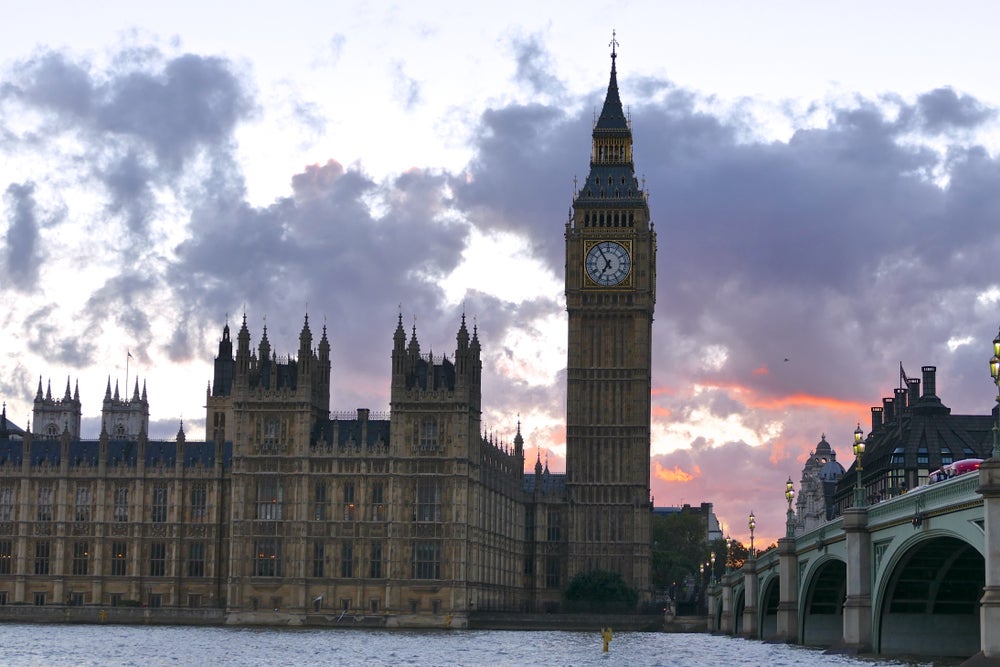
The 1922 Committee has received the 48 letters from Conservative MPs needed to trigger a vote of no confidence against current party leader Theresa May.
A ballot is reportedly set to take place today. If Conservative MPs vote against May, she will lose her position as party leader and subsequently Prime Minister.
However, as the party continues to fight over who should be in charge of Brexit, a handful of MPs from various other political parties are plotting to overthrow the government using an act that was passed under Conservative rule following the 2010 general election.
So what is the Fixed-term Parliaments Act 2011, and how could it be used to stop Brexit?
What is the Fixed Term Parliaments Act?
The Fixed-term Parliaments Act was introduced in 2011 as part of the Conservatives’ promises to the Liberal Democrats following the 2010 election, following which the two parties agreed to form a coalition.
The act introduced fixed-term elections in the UK for the first time, stating that a general election must be held every five years.
How well do you really know your competitors?
Access the most comprehensive Company Profiles on the market, powered by GlobalData. Save hours of research. Gain competitive edge.

Thank you!
Your download email will arrive shortly
Not ready to buy yet? Download a free sample
We are confident about the unique quality of our Company Profiles. However, we want you to make the most beneficial decision for your business, so we offer a free sample that you can download by submitting the below form
By GlobalDataThe act was passed as a way of taking some of the control away from the ruling Prime Minister, in order to stop leaders from calling snap elections at times that suit them. It was hoped that this would help to put the wellbeing of British citizens ahead of party politics.
Given May was able to call a general election in June 2017, it seems the Fixed-term Parliament Act has failed to do its job in this regard.
However, the same clause that allowed her to force an election could now force her to stand down as Prime Minister.
The Fixed-term Parliaments Act states that an early general election can take place if the House of Common agreed that “this House has no confidence in her Majesty’s Government”. At least two-thirds of MPs would have to vote for this for the motion to be passed.
If MPs do not express confidence in the current Government after 14 days, Parliament is dissolved and a general election is called.
What does the no confidence section say?
Section 2 of the Fixed-term Parliaments Act 2011, the part that details how MPs can trigger a no confidence vote, reads:
(1) An early parliamentary general election is to take place if—
(a)the House of Commons passes a motion in the form set out in subsection (2), and
(b)if the motion is passed on a division, the number of members who vote in favour of the motion is a number equal to or greater than two thirds of the number of seats in the House (including vacant seats).
(2) The form of motion for the purposes of subsection (1)(a) is—
“That there shall be an early parliamentary general election.”
(3) An early parliamentary general election is also to take place if—
(a)the House of Commons passes a motion in the form set out in subsection (4), and
(b)the period of 14 days after the day on which that motion is passed ends without the House passing a motion in the form set out in subsection (5).
(4) The form of motion for the purposes of subsection (3)(a) is—
“That this House has no confidence in Her Majesty’s Government.”
(5) The form of motion for the purposes of subsection (3)(b) is—
“That this House has confidence in Her Majesty’s Government.”
(6) Subsection (7) applies for the purposes of the Timetable in rule 1 in Schedule 1 to the Representation of the People Act 1983.
(7) If a parliamentary general election is to take place as provided for by subsection (1) or (3), the polling day for the election is to be the day appointed by Her Majesty by proclamation on the recommendation of the Prime Minister (and, accordingly, the appointed day replaces the day which would otherwise have been the polling day for the next election determined under section 1).
How could this impact Brexit?
This is different to the vote of no confidence that has recently been called by the Conservative party. That vote could lead to May being forced out as leader of the Tories (and subsequently as Prime Minister), but it would not force a general election.
A vote of no confidence in the government would mean that May, or whoever takes her place at Conservative leader, will be given the almost impossible task of convincing Labour, SNP, Liberal Democrat and DUP MPs that they can deliver the Brexit that the public wants.
If they can’t, the Fixed-term Parliaments Act states that a general election would be held. While the referendum result shows that it is impossible to say which way the vote would go, this could potentially lead to a Labour victory, which would see Jeremy Corbyn take over as Prime Minister.
While Corbyn has long been against a second referendum, telling the BBC in January that “that ship has sailed”, he is under pressure from Labour MPs to do just that if given the opportunity. It would certainly give at least 48% of the voting public reason enough to back him should an election be called.
Earlier this month, Corbyn told ITV News that ‘remain’ could be an option should a vote on the outcome of Brexit be held, which could potentially lead to Brexit being cancelled.
Is there enough support in Parliament to trigger a general election?
Leading figures from the SNP, Liberal Democrats, Green Party, Plaid Cymru and a handful of Labour MPs have pleaded with Corbyn to put forward a no confidence vote against the government.
“Jeremy, we are asking that in the days ahead you think very hard about adding your signature to those of the other leaders here today,” said Labour’s Dame Margaret Beckett at a People’s Vote meeting yesterday. “Table a motion of no confidence so that, if you cannot get the general election we want, you can campaign for the People’s Vote that Labour’s members and voters so desperately desire.”
Combined, these parties make up 318 of 650 total number of seats in Parliament. Conservative MPs currently hold 315 seats.
In order to trigger the Fixed-term Parliaments Act vote, 429 MPs would need to agree, so the decision would ultimately lie with the Tories.
For the 184 Tory MPs that voted to remain in the EU in 2016, this could potentially be the toughest vote of their lives. Helping to push the no confidence vote above the threshold could see Brexit reversed, but it would also mean voting against their own party and potentially putting Labour back in power.







